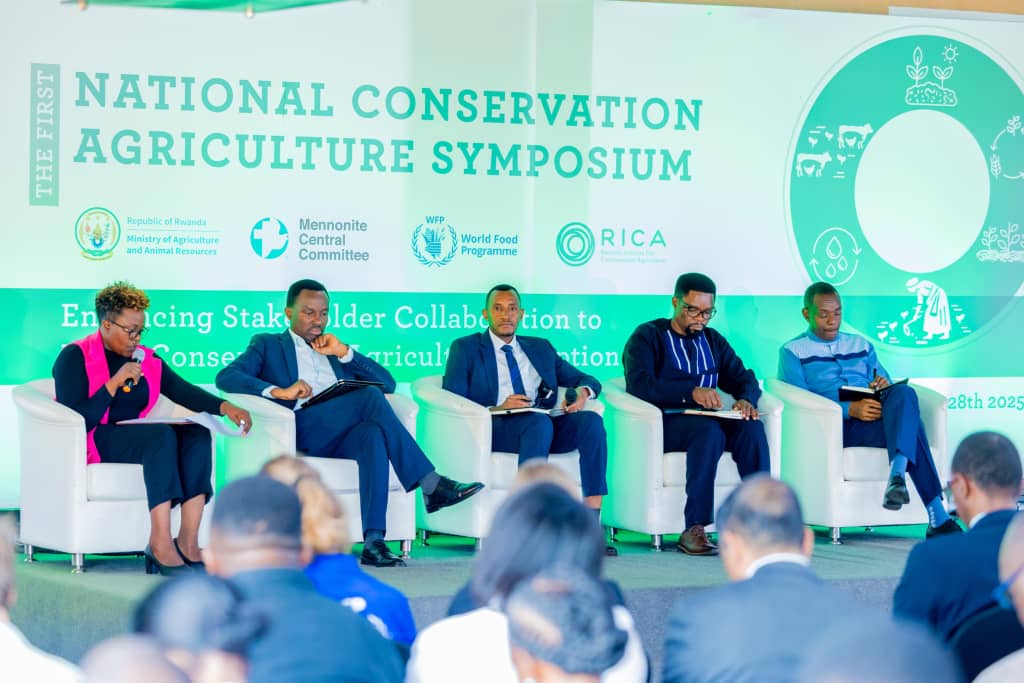Soil-conserving agriculture is now seen as one of the key methods to fight climate change, according to agriculture experts in Rwanda.
Soil-conserving agriculture is becoming a smart solution for climate challenges. It protects the land, increases food production, and builds a better future for farmers. By using methods like not ploughing the land, keeping the soil covered, and rotating crops, farmers are protecting the soil and feeding their families.
With support from the government and international partners, this kind of farming is expanding across Rwanda. It shows that combining traditional knowledge with science can help solve the big problems of our time like climate change and food insecurity.
Experts say this type of farming helps build stronger, more climate-resilient agriculture. Farmers who have already started using soil-conserving methods say they are seeing good results.
One of those farmers is Jonas Gakuba, a professional farmer from Kirehe District. He shared how things changed after he started practicing soil-conserving agriculture.
He said, “This helped our soil to regain its natural health because we leave plant remains in the field after every harvest. That made our yields increase to six tons per hectare.”
Dr. Magnifique Ndambe Nzaramba, the Deputy Director of the Rwanda Institute for Conservation Agriculture (RICA), explains that soil-conserving farming is based on three main principles.
He said, “The first principle is not to plough or disturb the soil. The second is to always keep the soil covered with crop residues, whether its maize stalks or bean leaves. The third principle is crop rotation changing the type of crop grown in the same field.”
Organizations such as the Mennonite Central Committee (MCC) and the World Food Programme (WFP) are among the key partners working to promote soil-conserving agriculture in Rwanda.
They said, “Our role as MCC in Rwanda is to support farmers to practice soil-conserving farming. We do this using demonstration plots what we call ‘school farms.’ If more people adopt this method, food production will increase, and we will be better prepared to fight climate change. We will also be more food secure, helping us archive our global goal of ending hunger.”
Dr. Patrick Karangwa, a Director in the Ministry of Agriculture and Animal Resources in charge of promoting modern farming, says the Rwandan government is giving special support to soil-conserving agriculture because it helps increase productivity in a sustainable way.
He said, “One of the best ways to reduce the problem of soil erosion is soil-conserving agriculture. Terraces are also very important. And soil-conserving farming must be followed properly to reduce erosion. Another benefit is that this kind of farming helps the soil hold water.”
Under the Rwandan Government’s National Strategy for Transformation (NST2), the country plans to increase the agricultural sector’s growth rate by 6% per year. In addition, crop yields are expected to rise by 50% in the next five years.
By Marie Louise Mukanyandwi.
